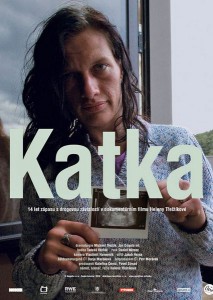
Helena Trestikova is the author of 10 episodes from the series Women on the Brink of the New Millennium, intimate portraits of both successful women and women on the social periphery. The tragic story of a girl named Katka who believes that joy and happiness can be applied through a hypodermic needle. All she is left with is despair. We first meet Katka at a rehab clinic in Nemcice, still full of optimism and faith in a drug-free future. The film tries to draw attention to the drug problem from a somewhat different point of view.
Read More »
Documentary
Tchoupitoulas (2012) Bill Ross IV, Turner Ross, William Zanders, Bryan Zanders, Kentrell Zandrs, Documentary
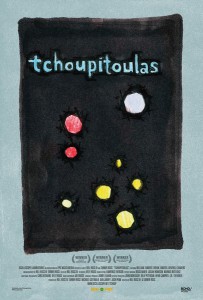
Bill and Turner Ross’s Tchoupitoulas begins with wistful narration from its young protagonist, an impoverished African-American boy with a distinctly Southern drawl detailing a dream he’s recently had: “I don’t really have dreams,” he says, “but last night I did. It was actually a close-up of my future—like a flashback, except a flashing future. I was dreaming I seen me in the NFL, and I was playing for the New York Giants.” Right away, the similarities between this doc-fiction hybrid and Benh Zeitlin’s Beasts of the Southern Wild are evident, which makes sense considering both films are products of Court 13, a so-called “independent filmmaking army” made up of a group of ex-New Yorkers who moved to New Orleans in hopes of fostering a grassroots film community. But thanks to its decidedly less sensationalistic point of view, Tchoupitoulas proves the perfect antidote to the twee affectations of Zeitlin’s feature.
Read More »
Agenda: Grinding America Down (2010) Curtis Bowers, Documentary
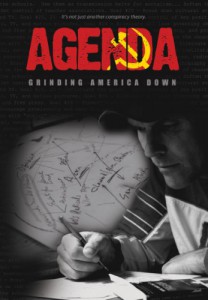
When Idaho Legislator Curtis Bowers wrote a “letter to the editor” about the drastic changes in America’s culture, it became the feature story on the evening news, people protested at the Capitol, and for weeks the local newspapers were filled with responses. He realized then… he’d hit on something. Ask almost anyone and you’ll hear, “Communism is dead! The Berlin Wall came down.” Thought the word communism isn’t used anymore, this film will show the ideas behind it are alive and well. Join Bowers for a fascinating look at the people and groups that have successfully targeted America’s morality and freedom in their effort to grind America down. It’s a well documented AGENDA.
Read More »
Gay Sex in the 70s (2005) Joseph F. Lovett, Robert Alvarez, Alvin Baltrop, Barton Benes, Documentary
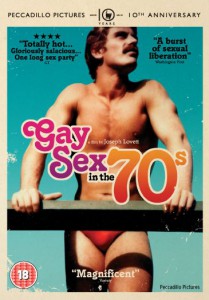
Thirteen men and one woman look back at gay life and sex in Manhattan and Fire Island – from Stonewall (June, 1969) to the first reporting on AIDS (June, 1981). They describe the rapid move from repression to celebration, from the removal of shame to joy, the on-going search for “someone,” the freedom before AIDS, the friendships, and brotherhood. They take us through cruising and sex in public places, the drug scene, the bars and the baths, the birth of entertainment and dance clubs, and starry nights on Fire Island. Photographs, home movies, newsreels, and film clips illustrate the story. A few contemporary “what did the 70’s mean?” man-in-the-street takes end the documentary.
Read More »
American Masters: A Conversation with Gregory Peck (1999) Barbara Kopple, Gregory Peck, Cecilia Peck, Veronique Peck, Documentary, Biography
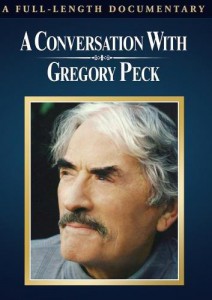
In 1999, Gregory Peck (1916-2003) visits the Barter Theatre, Abingdon, VA, where he had acted in 1940 and where this evening he tells stories and answers questions about his career. Interspersed are clips from Peck’s films and from interviews recorded over the years and vérité contemporary footage of visiting with his daughter Cecilia before and after the birth of her son, receiving the National Medal of Arts, chatting with Lauren Bacall and with Martin Scorsese, and dining with Jacques Chirac, always with his wife of forty-four years, Veronique Passani, beside him. Throughout, Peck is informal, candid, and wry.
Read More »
Fados (2007) Carlos Saura, Chico Buarque, Camané, Carlos do Carmo, Art-house, Documentary, Musical
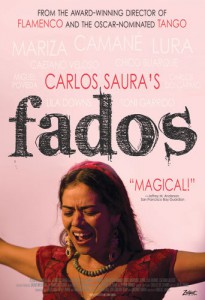
After Flamenco (1995) and Tango (1998) – nominated for the Academy Award for Best Foreign Language Film, in 2005 Carlos Saura completes his trilogy on modern urban song with Fados. After over two years of research into the subject, Carlos Saura takes an enormous step forward in his approximation to music. If, in his earlier musicals, Iberia, Flamenco, Tango…, he based his work on dancing, in Fados he makes a special effort with the plot and image to reflect the birth of a suburban, dockland music which is in itself a synthesis of all of the music born towards the end of the 19th century.
Read More »
Nu Guo – In the Name of the Mother (2014) Documentary
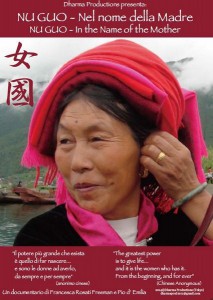
In China, in the foothills of the Himalayas, a non-violent egalitarian society has for millennia offered proof that a harmonious and peaceful life is still possible. On the occasion of the 50th anniversary of the United Nations the Mosuo were recognized as a “model society”. On what basis does this community of about 50,000 people function? Above all, for how much longer can it resist the pressures of a market economy engendered by strategically organized mass tourism? In a landscape of outstanding beauty, encounters and testimonies draw us closer to the traditional values cherished by this ethnic group confronted by a crucial challenge: how to safeguard the essence of its identity from destruction and not succumb, as have so many other societies, to the impact of unconstrained globalization.
Read More »
Umarla klasa / Dead Class (1977) Andrzej Wajda, Tadeusz Kantor, Maria Kantor, Zofia Kalinska, Documentary, Drama
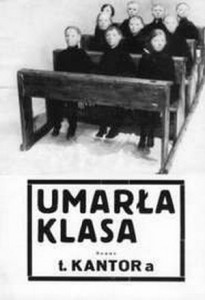
The Dead Class (1975), by Tadeusz Kantor and the Cricot 2 company, is considered one of the most innovative and influential works of twentieth-century theatre. The breakthrough first version of the production – performed to great critical acclaim, but only rarely seen live by audiences outside Poland – was documented on film in 1976 by the Oscar-winning director Andrzej Wajda.
Read More »
Quiet Rage: The Stanford Prison Experiment (1992) Ken Musen, Documentary
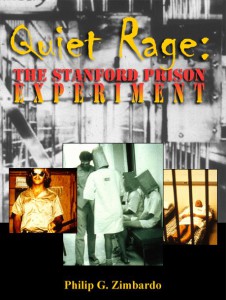
In the summer of 1971, Philip Zimbardo, Craig Haney, and Curtis Banks carried out a psychological experiment to test a simple question. What happens when you put good people in an evil place-does humanity win over evil, or does evil triumph? To explore this question, college student volunteers were pretested and randomly assigned to play the role of prisoner or guard in a simulated prison at Stanford University. Although the students were mentally healthy and knew they were taking part in an experiment, some guards soon because sadistic and the prisoners showed signs of acute stress and depression. After only six days, the planned two-week study spun out of control and had to be ended to prevent further abuse of the prisoners. This dramatic demonstration of the power of social situations is relevant to many institutional settings, such as the Abu Ghraib Prison in Iraq.
Read More »
Yuki Yukite shingun / The Emperor’s Naked Army Marches On (1987) Kazuo Hara, Kenzo Okuzaki, Riichi Aikawa, Masaichi Hamaguchi, Documentary, War
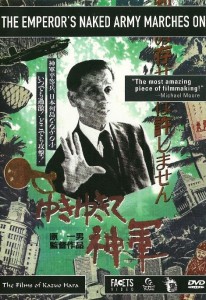
The Emperor’s Naked Army Marches On is a brilliant exploration of memory and war guilt, a subject often ignored in modern Japan. In this controversial documentary, Kazuo Hara follows Kenzo Okuzaki in his real-life struggle against Emperor Hirohito. He proudly declares that he shot BBs at the Royal Palace, distributed pornographic images of the Emperor, and once killed a man for the sake of his strange crusade. As the film progresses, Okuzaki reveals a gruesome mystery: why were some Japanese officers killing their own soldiers during WWII? What happened to their bodies? Okuzaki begs, cajoles, and occasionally beats the story out of elderly veterans. When these old men do break down and talk, their testimonies are some of the most chilling, riveting descriptions of wartime desperation ever committed to film. In his desire to unearth these horrors, Okuzaki’s behavior grows increasingly extreme and bizarre. By the film’s end, Hara seems to ask whether the terrible nature of this buried incident is worth the violence of Okuzaki’s methods.
Read More »